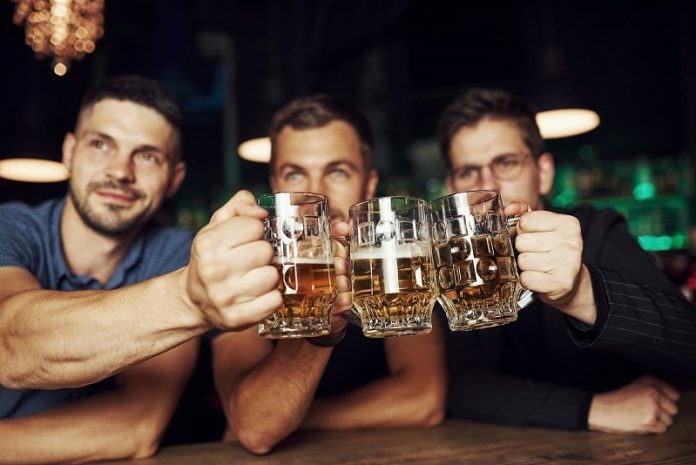
Having a drink with friends at happy hour often makes you feel more sociable, upbeat, and happy.
But drinking alone can sometimes lead to feelings of sadness or loneliness. Scientists believe they have discovered why this happens.
Researchers from The University of Texas at El Paso (UTEP), led by biologist Kyung-An Han, Ph.D., have been studying how social settings influence how we react to alcohol.
Their recent study, published in the journal Addiction Biology, sheds light on the brain’s response to social drinking and how it boosts feelings of euphoria.
This new understanding could help us better grasp why some people are more vulnerable to Alcohol Use Disorder (AUD), a condition that affects millions of people worldwide.
To study this, Han’s team used an unlikely test subject: fruit flies. Though small and simple, fruit flies share about 75% of the same genes that cause diseases in humans.
By studying how fruit flies react to alcohol, scientists can gain insight into how humans might react as well.
In their experiments, the researchers exposed fruit flies, either alone or in groups, to ethanol vapor (the alcohol in drinks) and measured their movements.
Flies who “drank alone” showed only a small increase in movement, but flies in a group setting became much more active and moved faster after exposure to alcohol. This showed that social settings make alcohol’s effects stronger.
Next, the researchers looked at the role of dopamine, a brain chemical that affects pleasure and motivation. They compared a group of flies with normal dopamine levels to another group with higher dopamine levels.
The results showed that in a solitary setting, both groups of flies responded similarly to alcohol with only a slight increase in movement. However, in group settings, the flies with higher dopamine levels showed much more hyperactivity than usual. This suggests that both social settings and dopamine work together to enhance the effects of alcohol.
The team then identified the D1 dopamine receptor as the key player in this process. The D1 receptor is a brain component that helps regulate dopamine’s effects.
Interestingly, this receptor is also linked to Alcohol Use Disorder in humans, which could help explain why some people are more prone to developing drinking problems.
“We’ve shown that social settings and dopamine together heighten the brain’s response to alcohol,” said Han, who is also an associate dean at UTEP. The discovery of the D1 receptor’s role in this process provides a blueprint for future research into how alcohol and social factors contribute to AUD.
The research team plans to further investigate how the D1 receptor acts as a central point for these signals in the brain. Their goal is to help people better understand and possibly prevent AUD, improving lives in the process.
If you care about brain health, please read studies that eating apples and tea could keep dementia at bay, and Olive oil: a daily dose for better brain health.
For more health information, please see recent studies what you eat together may affect your dementia risk, and time-restricted eating: a simple way to fight aging and cancer.



